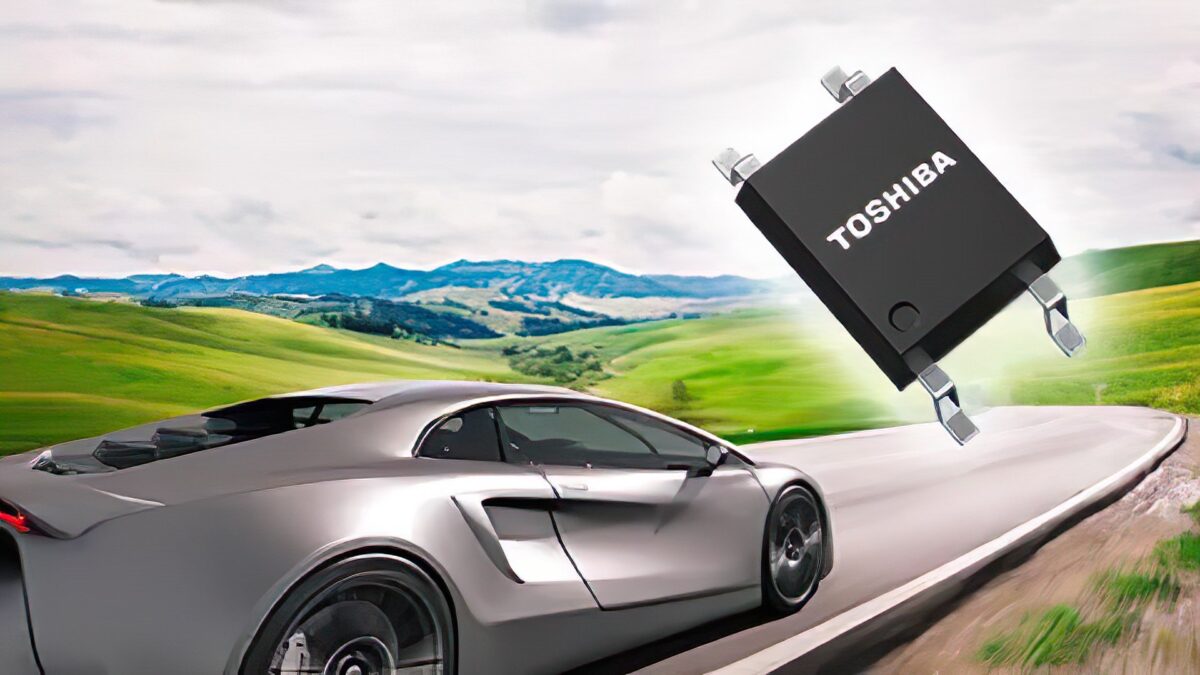Japanese electronics manufacturer Toshiba has released a new PV output photocoupler for solid-state relay. The TLX9910 solution is made for automotive equipment, such as battery management systems, onboard chargers, and inverters.
Photovoltaic output photocouplers are electronic components that use light-emitting diodes (LED) and a photovoltaic cell in a single package, allowing two circuits to communicate optically. They provide electrical isolation between the control and load-carrying circuits in solid-state relays. The latter are electronic switches that use semiconductor devices.
“The new TLX9910 is suitable for gating high-voltage power MOSFET (Metal-Oxide-Semiconductor Field-Effect Transistor) used in solid state relays,” the company said in a statement. “By combining the new product with a high-voltage power MOSFET, high-voltage and high-current switchings that are difficult to achieve with photorelays can be achieved.”
“High voltage power MOSFET tend to require a higher gate-drive voltage as the amount of output voltage, and current are larger,” the company said. “By improving the minimum open voltage of the new product, it is possible to drive the gate of a high voltage power MOSFET with a single product, thereby reducing the number of components mounted on the board.”
Popular content

This content is protected by copyright and may not be reused. If you want to cooperate with us and would like to reuse some of our content, please contact: editors@pv-magazine.com.


By submitting this form you agree to pv magazine using your data for the purposes of publishing your comment.
Your personal data will only be disclosed or otherwise transmitted to third parties for the purposes of spam filtering or if this is necessary for technical maintenance of the website. Any other transfer to third parties will not take place unless this is justified on the basis of applicable data protection regulations or if pv magazine is legally obliged to do so.
You may revoke this consent at any time with effect for the future, in which case your personal data will be deleted immediately. Otherwise, your data will be deleted if pv magazine has processed your request or the purpose of data storage is fulfilled.
Further information on data privacy can be found in our Data Protection Policy.